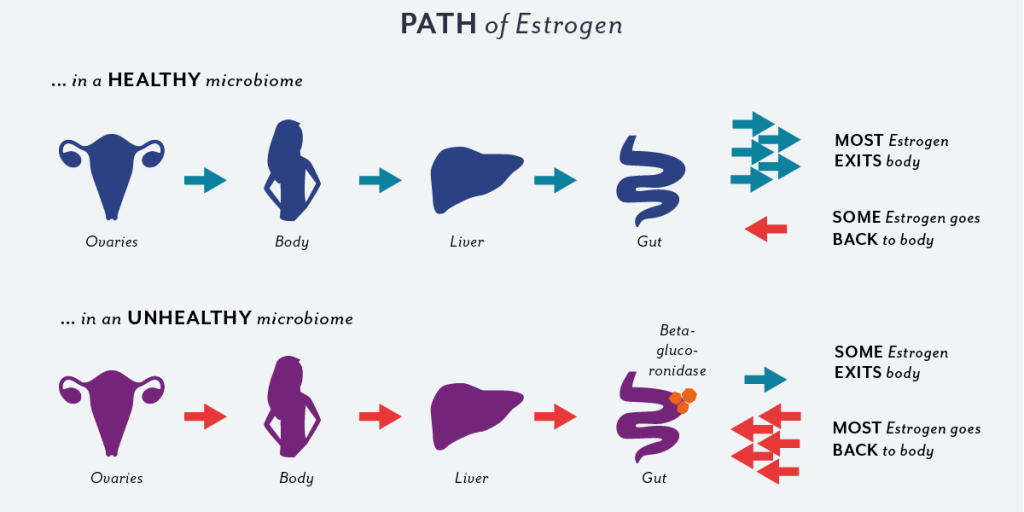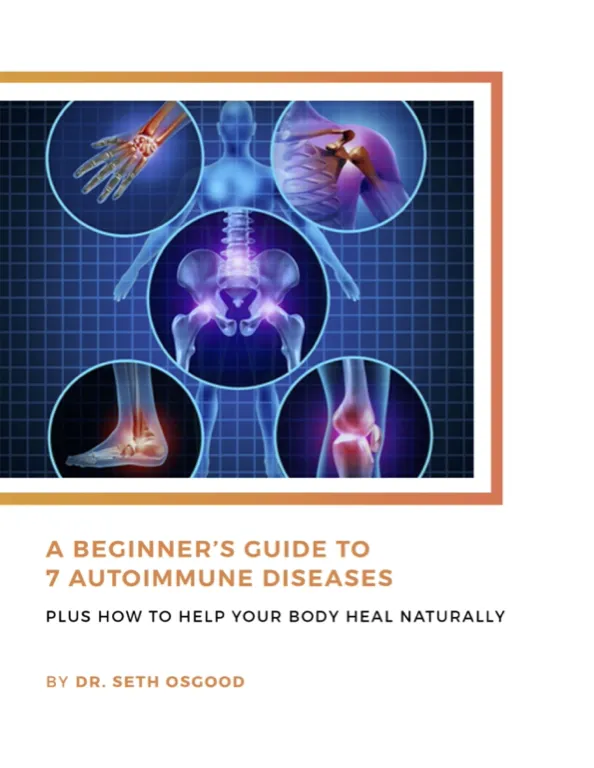Mood imbalances, weight gain, fatigue, PMS, low libido, hair loss…these are all signs of a hormone imbalance.
The issue could be with thyroid, sex, or stress hormones, or a combination. But if we look deeper, the root of the imbalance is often lurking in the gut.
Let’s take a look at three ways your gut health impacts hormones and how you can restore balance naturally.
How Gut Health Issues Lead to Hormone Imbalances
1. Nutrient Deficiencies
Your gut is where you absorb the nutrients needed to produce hormones. If you’re not breaking down and absorbing nutrients properly, you won’t have the building blocks needed to make hormones like thyroid hormones, estrogen, progesterone, and cortisol.
Poor nutrient absorption and deficiencies can be caused by gut infections like SIBO, Candida overgrowth, or parasites, along with deficiencies in stomach acid or digestive enzymes needed to break down your food.
2. Gut Dysbiosis
The trillions of microbes in your gut, known as your microbiome, play a role in activating and eliminating certain hormones. When there’s an imbalance in these microbes, due to stress, toxins, antibiotics, gut infections, or a poor diet, it can have a huge impact on hormone levels and function.
For estrogen, in particular, there’s a group of microbes called the estrobolome that help regulate levels of circulating estrogen. Normally after estrogens are deactivated by your liver, they head to your intestines where most of them exit your body via your stool.
But, in the case of estrobolome imbalance, instead of exiting, most of the estrogens are reactivated and recirculated throughout your body.
 Image via Clue.com, designed by Marta Pucci
Image via Clue.com, designed by Marta Pucci
This can lead to estrogen dominance, causing symptoms like heavy periods, fibroids, and cysts, and increasing your risk for cervical, breast, and ovarian cancer.
Gut dysbiosis can also affect thyroid function because about 20% of your thyroid hormones are converted to their active state in your gut.
3. Leaky Gut
When your gut lining becomes too permeable, known as leaky gut, it leads to chronic inflammation, which disrupts virtually everything in your body, including hormone levels.
It also opens the door for autoimmune thyroid conditions to develop, where your thyroid to either overproduces or underproduces its hormones.
Common causes of leaky gut include an inflammatory diet, stress, medications, toxins, and gut infections.
Restoring Optimal Gut Health & Hormones
In my clinic, when patients come in with a hormone imbalance, gut health is one of the first things we address.
We start with a nutrient-dense, anti-inflammatory diet to support a balanced microbiome, a healthy gut lining, and the nutrients needed for hormone production.
We restore the ingredients needed for optimal digestion, including stomach acid, digestive enzymes, and bile acid. And we use probiotics to replenish the good bacteria in your gut that support hormone metabolism.
Depending on symptoms, we may also test for and treat gut infections, such as SIBO, Candida overgrowth, or parasites.
We also look beyond gut health to address factors like stress, detoxification, and other sources of inflammation.
By getting to the root of hormone imbalances, our patients are able to support hormone balance naturally and often eliminate symptoms completely.
About the Author: Dr. Seth Osgood is a Doctor of Nursing Practice, Board Certified Family Nurse Practitioner and Institute of Functional Medicine (IFM) Certified Practitioner.
He has helped people from around the world improve their health utilizing a Functional Medicine approach.
Want to work with Dr. Osgood and the GrassRoots team? Become a patient in our West Lebanon, New Hampshire Functional Medicine clinic, or our Burlington, Vermont Functional Medicine clinic!





0 Comments